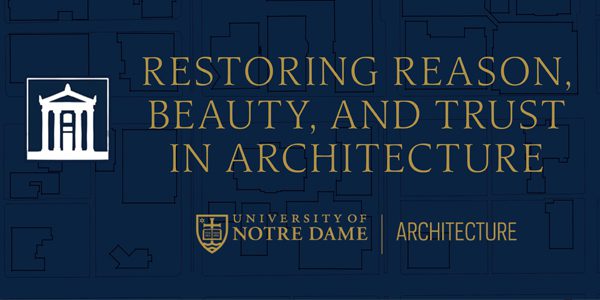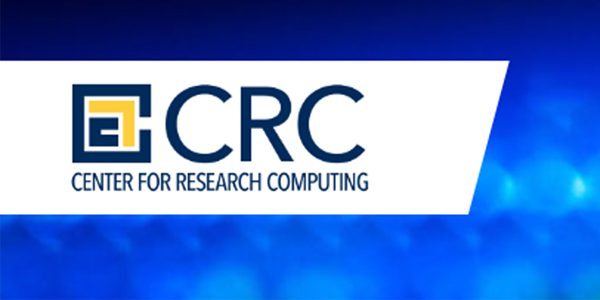Bridging the Divide 2020 – Political Polarization in America
Subscribe to the ThinkND podcast on Apple, Spotify, or Google.
Featured Speakers:
- David Campbell, Packey J. Dee Professor of American Democracy at the University of Notre Dame and the chairperson of the political science department
- Caitlin Conant, political director of CBS News
- Darren Davis, Snyder Family Mission Professor, Lilly Presidential Fellow, Department of Political Science, University of Notre Dame
The second session of the Bridging the Divide series centered around political polarization today in America. David Campbell, Notre Dame Professor of American Democracy and Political Science Department Chairperson, moderated a discussion between Darren Davis, Notre Dame Professor in the Department of Political Science, and Caitlin Conant, political director for CBS News in Washington, D.C. The discussion aimed to model civil discourse, urge viewers to think more critically about political differences, and to have respect for those who hold different viewpoints.
The first topic of discussion focused on the first 2020 presidential debate and potential differences in the then-upcoming vice presidential debate between Mike Pence and Kamala Harris. Both Davis and Conant touched on the fact that Americans were irritated after the presidential debate, as there were chaotic arguments that took away from a substantive discussion. Conant pointed out there there is a call for more substance from both sides in the debate that is expected to be present in the vice presidential debate. Davis shared how obvious issues to be discussed in the vice presidential debate will be COVID-19 and perceptions about law and order. Additionally, Davis mentioned how, as seen in the presidential debate, it is more about the candidate’s personalities and political issues seem to take a backseat.
Another key topic discussed regarded any issues where parties disagree or agree more than expected. Conant raised a point about both sides feeling that the presidential debate felt a bit petty with all of the issues the country is facing right now, both with public health and the economy. Additionally, the speakers discussed how COVID has shined a light on the deep divides in America over racial and economic inequality, which both Davis and Conant feel will be a big factor in this election. This transitioned into another key topic of why the nation has become so politically polarized. Davis pointed out that Americans still agree on abstract ideals, such as issues pertaining to the Constitution. However, where Americans disagree is when they apply these ideals to details and specific societal issues; this is where the polarization arises.
The reason this polarization exists, as the speakers shared, is because of how customizable people’s inner circles have become. People can customize what they read, what they watch and listen to, who they talk to, and anything they consume. Therefore, people are not listening to differing opinions, but are rather in their own cocoons with people who share their beliefs and are not accustomed to respectfully listening to opposing viewpoints and trying to understand them. Conant shared how, in her opinion, the best way to combat this issue is to urge people to consume as much as they can about the history and context of an issue to gain a wider viewpoint and hopefully better understand all sides of the political aisle.
Davis shared a closing message of urging Americans to create more diverse social networks and try out different ideas. He reiterated how one’s social network is increasingly important, and in a highly customizable world, it is easy to only speak to those who share similar opinions and grow comfortable in that bubble. However, creating a diverse social network with various viewpoints can greatly help the issue of political polarization. Conant shared a similar message of urging people to get out of their bubbles as much as possible and truly listen to one another to broaden one’s viewpoint and create a country with more respectful civil discourse. Campbell closed telling the audience how conversations like these present opportunities for the Notre Dame community to listen to each other and create more civil discourse to be a force for good in the world, as the University’s mission calls us to do.
- There is a call for more substance in debates for both parties. People are annoyed with the arguments and want more substance and less chaos.
- Americans still agree on abstract ideals but disagree on the details and specific situations.
- With so much customization available, people are increasingly in their own bubbles, surrounded by people and news content that aligns with their beliefs, causing them to never listen to opposing viewpoints.
- Since Americans are so accustomed to networking and being friends with those of their same ideology, when one is confronted with people who express different opinions, they often do not know how to respond and feel frustrated, causing uncivil discussions.
- People must try to get out of their bubbles as much as they can, read about political context and history, listen to others with various viewpoints, and relearn how to disagree.
- “We are increasingly networked with people who share our same partisanship and our same ideology and our same political beliefs. We no longer are reaching out across the aisle to form friendships and establish networks with people who express different ideas than we do. And so when we actually come in contact and try to engage, well actually we try not to engage with people who are different than we are, we try not to engage with people who have different political viewpoint, but when we do come in contact with people who express different opinions than ours, it’s a new experience.” — Darren Davis, 48:32
- “In our schools, often students are not exposed to the actual debate or people with differing perspectives. I’ve done a little bit of research myself that shows that that’s actually one thing that does foster a greater appreciation for what is the soul of all politics which is conflict, which we have to remember is all the soul of all politics. If we didn’t have conflict, we wouldn’t need politics. And when young people learn that you can actually talk about issues you disagree over with others without actually hating the other side, listening to them, that doesn’t mean you agree with them but learning to get accustomed to them, I think it actually helps.” — David Campbell, 40:06
- “In 2016, the media was fairly criticized for not listening, and there were a lot of people out there it turns out, who felt like they hadn’t been listened to, who felt like they’d been overlooked, who were standing in line to vote for Donald Trump. I think there were certain elements where we were standing in line and talking to people, but we needed to do a better job.” — Caitlin Conant, 27:10
- “There is not complete polarization in American society. American citizens still agree on abstract ideals. We still agree on issues pertaining to the Constitution, freedom of speech, freedom of religion, things of that nature. But where the polarization breaks down is in the details. We as American citizens continue to agree on the abstract ideals, but we continue to disagree on the details.” — Darren Davis, 35:52
- “Part of the reason I think there are such divides is I think with the media, you can choose your own news these days. If you want just one side, if you want to just watch Fox or you want to just watch NBC or read Breitbart or read Vox, you can do that. I think CBS is down the middle, I think what we try to do is bring context, bring history to our reporting because it is a lot of just the day that was in many cases and not the why, of why you should care. In my opinion, I think the more you can read, the more you can watch, the more you can consume and get a better picture, that’s on all of us, that helps with the conversation.” — Caitlin Conant, 37:52
- “Right before we started talking, one of my reporters texted me and she was just going through all the Trump Facebook ads and she couldn’t find one that was targeting law and order, so it seems like there’s been a pivot in that message of it. It’s just something that was up today, but that is definitely something I’ll be monitoring.” — Caitlin Conant, 18:53
- “I also think culture plays into it, pop culture. There was this really smart, I think it was New York Times Magazine, interview with Andy Cohen who does all the Real Housewives and Bravo shows. They interviewed him right before the 2016 elections and I think it was published right before December or January after President Trump won the election and he was talking about how he’d done these polls with the audience of people who watch Bravo and they had said they thought Trump was gonna win and he basically said it’s not surprising and you can see why my shows have been so successful. It’s a lot of people who are yelling at each other and have nicknames for each other and get in these drag out fights, and I think when you look at it in the bigger context, I thought it was a really good point that it is kinda what people have become accustomed to right now in politics but also just in how TV has changed, entertainment has changed. It’s what people are consuming so it doesn’t seem as shocking when maybe when it moves over to politics.” — Caitlin Conant, 43:29
Related Content
How Cities Speak To Us
Professor Emily Talen joins the School of Architecture to share her work at The Urbanism Lab and its focal point at the University of Chicago for the study of the built...
View EventThe Black National Anthem & Parent’s Signing Off On Children Reading Black Books
In this week’s episode, Isaiah and Tykiera talk about some tweets about Black people that took Twitter by storm. They also talk about The Black National Anthem, Lift Every Voice...
watch videoTrusted AI Needs Trusted Data
In the buzz around AI, let’s not ignore the role of data for developing AI we can trust, says one Notre Dame computational scientist. Two years ago, Notre Dame launched the...
Read Article


